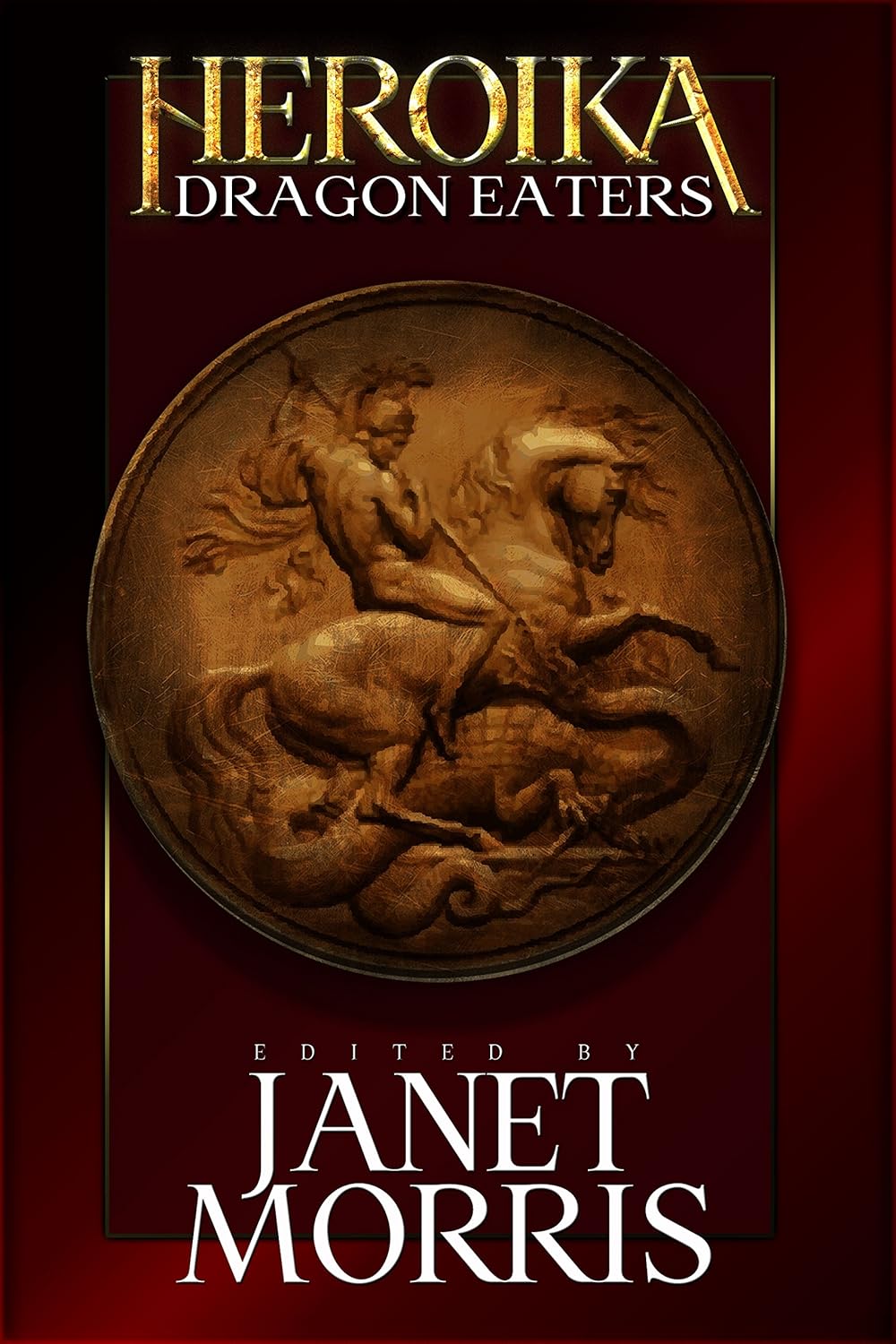 Our "History as the Agreed-Upon Lie" began for the human species when we first painted animals on cave walls and left our hand-prints there; then in Mesopotamia where we cut decorations into monumental stones as early as the 12th century BCE. Were there ever dragons -- real ones? Many cultures refer to them in myth and legend: some had legs; some but not all breathed fire; some lived in the ocean, others on land; some flew.
Our "History as the Agreed-Upon Lie" began for the human species when we first painted animals on cave walls and left our hand-prints there; then in Mesopotamia where we cut decorations into monumental stones as early as the 12th century BCE. Were there ever dragons -- real ones? Many cultures refer to them in myth and legend: some had legs; some but not all breathed fire; some lived in the ocean, others on land; some flew. So perhaps dragons hide deep in our racial memory, going back to the days when we were the size of German Shepherds and lethal beasts ruled sea and ground and sky. Did we ever eat them? Today, the most fierce and proud of Western civilization's professional warriors may refer to themselves as "snake-eaters" -- not because of their dietary preferences, but because of their strength, determination, and competitiveness.
For more than thirty years I, with my husband Chris Morris and other like-minded folk, have been exploring the heroic ethos as did Homer in his day and Shakespeare in his: not simply the "monomyth" of Joseph W. Campbell, but also heroism and anti-heroism as it has shaped our myth and cultures, and still does today. In novels we like to read and love to write, history and myth and legend mix and reinforce and explain and articulate one another as only the written word can do. Writers have depended on myth, legend, and history in disparate portions to create humanity's greatest literature -- the better the writer, the bigger the serving that writer gives us of history turned dramatic and allegorical.
We live today in a time where anti-heroes are ascendant, which makes exploring the heroic ethos even more interesting. Was Achilles an anti-hero? Or a hero? Homer blamed him, at the start of the Iliad, for the many souls his petulance sent down to Hades; later, when the Amazon Queen Penthesilea insists on facing Achilles in single combat at Troy, he warns her in a demeaning fashion, then kills her with one blow to her breastplate. Then, taking off her helmet, he falls in love with her and
kisses her dead mouth on the battlefield in an undisguised act of necrophilia. Humans are complex, have always been. Homer, better than most, showed us the manifold nature of the heroic heart.

When we had a chance to develop a series for Perseid Press called
"Heroika," anthologies, books designed to treat the heroic ethos
throughout human history, we jumped at the chance. We called the first
of these anthologies, "Heroika 1: Dragon Eaters," not expecting our
writers to take the "dragon eating" part seriously. But some of them
did. Some even offered me olden family recipes... These story span
man's recorded myths and legends of dragon hunting, from the third
millennium BCE and Hittite/Hurrian Myth of Illuyankas to tales of
magical realism set today and tomorrow. The men and women in these tales
include hero-cult figures such as Heros Equitans, Rhesos of Thrace, who
preceded the myth of St. George and the Dragon yet embodied it, as well
as people who might live in your town, might have lived in your time, in
your grandfather's time.... Heroika may yet present nonfiction articles
in subsequent volumes. This, the first
volume, relies solely on fictional tales... or does it?
So we ask you -- no, better, we dare you to put aside your preconceptions and see what seventeen agile minds made of our call to duty as they each wrote a story about "Dragon Eaters" in human history, some about the men and women themselves, some about the myth, some about
our racial memories.
Perseid Press specializes in writers who write dangerously for readers who do the same. In Dragon Eaters, people test themselves and their beliefs against forces of nature and hope to prevail with ... the art of dragon killing:
Here's a description of Heroika 1: Dragon Eaters, publication date May 25, 2015
"Dragons have been eating humans for centuries. Now heroes throughout history stalk their legendary foe. Learn how to hunt, kill, and eat the wild dragon. Never before has revenge tasted so good. A literary feast for the bloody-minded.
In Janet Morris' anthology on the art of dragon killing, seventeen writers bring you so close to dragons you can smell their fetid breath. Tales for the bold among you.
HEROIKA 1 -- DRAGON EATERS, an anthology of heroic fiction edited by Janet Morris, features original stories by Janet Morris and Chris Morris, S. E. Lindberg, Jack William Finley, Travis Ludvigson, Tom Barczak, J. P. Wilder, Joe Bonadonna, Milton Davis, Alexandra Butcher, William Hiles, M Harold Page, Walter Rhein, Cas Peace, Beth W. Patterson, Bruce Durham, Mark Finn.

No comments:
Post a Comment